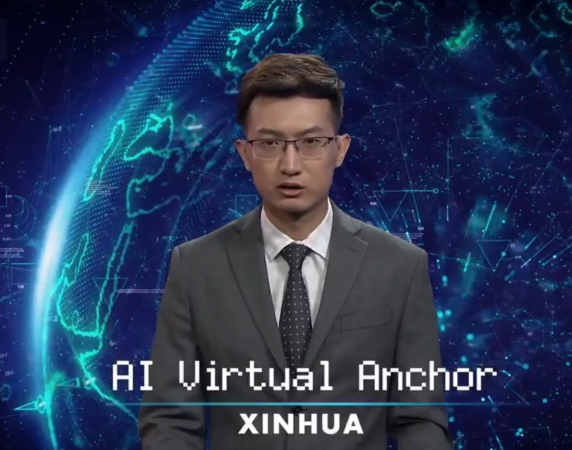
"Mark my words, AI is far more dangerous than nukes," were the words of billionaire tech entrepreneur and philanthropist, Elon Musk, and it seems apt to make note of the quote here as Artificial Intelligence (AI) continues to grow tremendously. That may be the farfetched future, but AI seems to be putting jobs of TV news anchors at risk for now.
China's Xinhua news agency showed the world's first AI news anchors at the World Internet Conference in east China's Zhejiang province. For a country that is aiming to be a world leader in AI by 2030, China seems to head on the right path.
The human-like AI news anchors can certainly fool anyone into believing they're real human anchors. If that wasn't enough, the looks and features of the AI anchors are that of real Xinhua news presenters.
Xinhua developed two AI news anchors, one that speaks Chinese and the other is an English speaker, in collaboration with China's search engine company Sogou. The Chinese AI anchor looks exactly like Xinhua presenter Qiu Hao, while the English-speaking presenter is modelled after Xinhua's Zhang Zhao.
"Hello, you are watching English news programme," the English-speaking AI presenter said in the opening of his first report.
"I will work tirelessly to keep you informed as texts will be typed into my system uninterrupted. I look forward to bringing you the brand new news experiences," the AI anchor said, hinting at two things here. First, the inputs need to be fed to the system for the AI anchor to read out news in a human fashion and the second thing is its commitment to work tirelessly.
According to the news agency, the AI anchors can work 24/7 without any added cost of overtime. It makes sense for news agencies trying to reduce news production costs. The news agency says its newest recruits "can read texts as naturally as a professional newsreader," but there are many who have challenged the claim.
"It's quite difficult to watch for more than a few minutes. It's very flat, very single-paced, it's not got a rhythm, pace or emphasis," Prof Wooldridge told the BBC.
Noel Sharkey, emeritus professor of artificial intelligence and robotics at the University of Sheffield, said it was a good effort, but it could be very dull even if it improves over time. Why don't you take a look at the video shared by Xinhua featuring the newest AI news anchor and be the judge?









